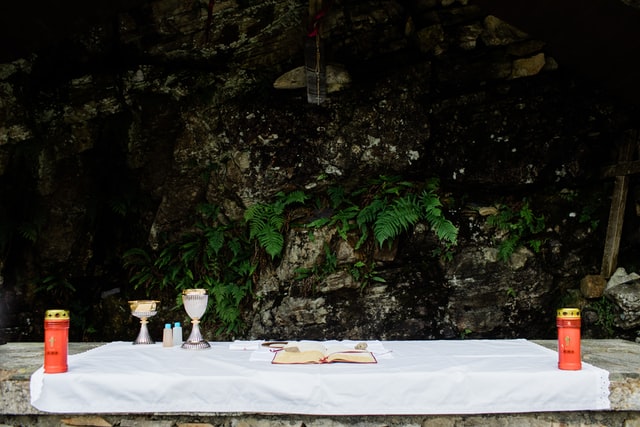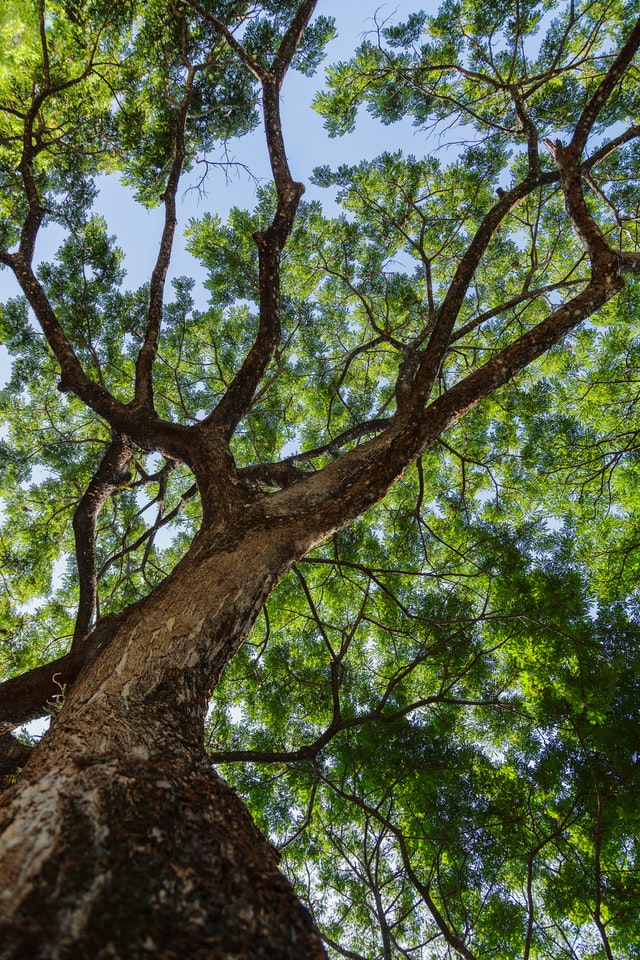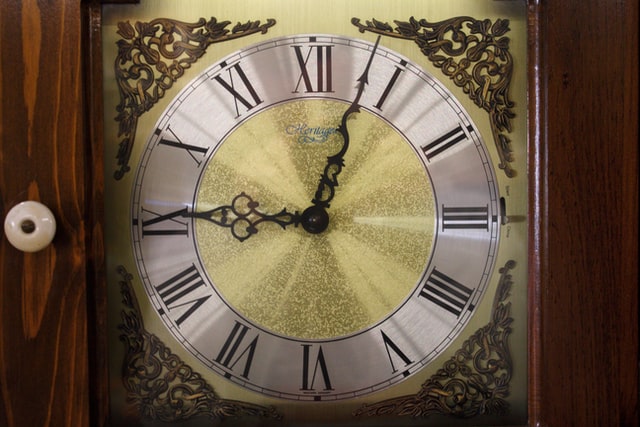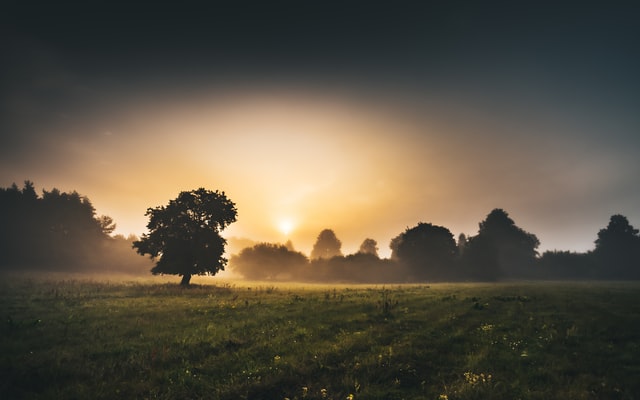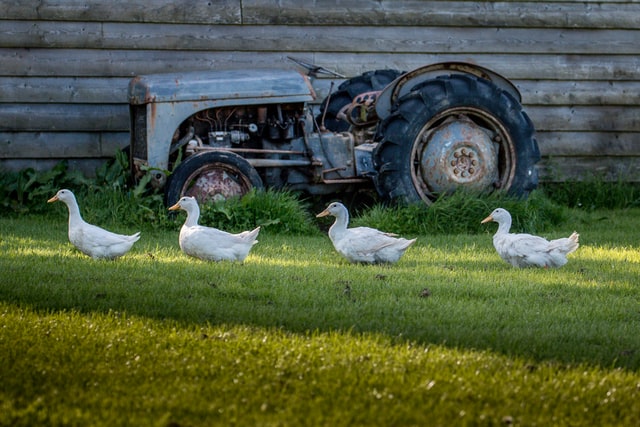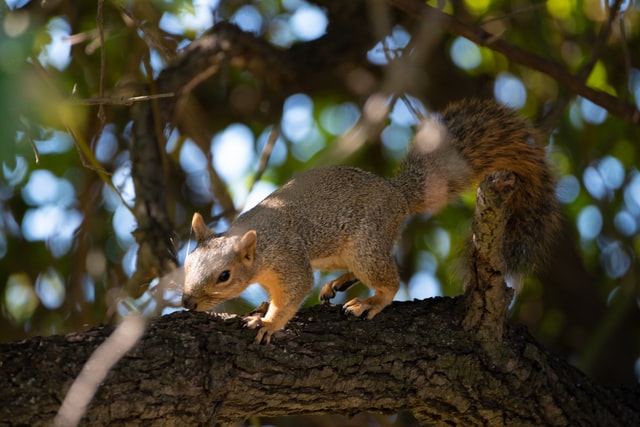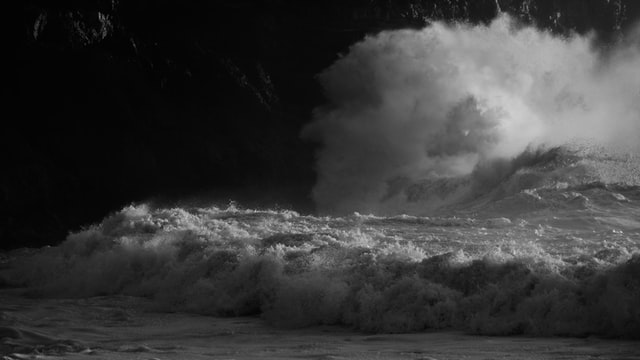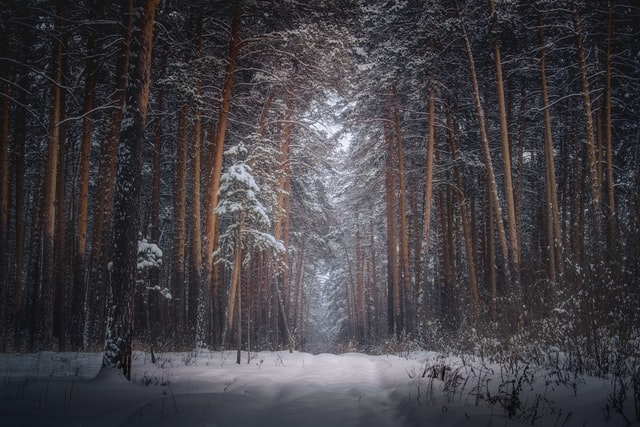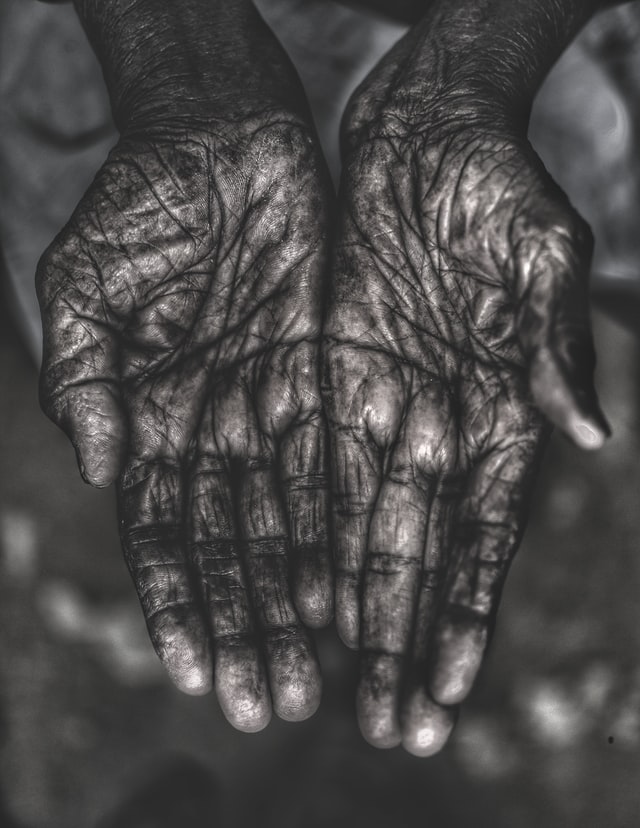by Dana Miller
Well done, us!
No one ever saw us tumble out of the grandfather clock, one after the other like so many Bacha Posh acrobats, seconds ahead of being conspicuously late to dinner yet again.
We were always conspiratorially chased by a brace of over-friendly rooks,
our palms coated in negligible nectarine,
drowned scone smidgens and squid giggles
falling freely from our peacoat pockets in a techno-pastoral candy-crumb trail like no other.
Pendulum pirates, we were!
Wee nixies of the wry-necked variety,
we danced on the escritoire with our escargot governess and
spent our afternoons playing imperial concertina to the talking apple trees,
blissfully adrift in a world balanced atop a banquet table of overturned canoes
(in which we set up hermitage)
and purple velvet top hats from which we drew no end of magician rabbits, sextets, and spiralized marbles.
Between banana leaves, in balloon sleeves and loudly checked trousers, we took in the beatitudes and other rare wisdoms shared with us by a paradise of best-friend donkeys.
In our butcher’s boy bonnets we brayed right in tune with them, boxing the boxwood hedgerows for their verdant impertinence,
blowing dizzy pinwheels round and round the cricket carousels while
chips of beggar granite that were really square-cut emeralds
emptied from our willow-woven pouches.
All appeared a graceful gambol of divine disgrace. All forgot to forget time.
No one ever had to invent Christmas for us!
Not for us any stale Savile Row suspenders or stealsome Steerforth storm-shanties.
Smacks of jellyfish formed our carpets and Sedgemoor geese (our sentinels and soldiers)
flew in full fleabitten regalia.
Up and up the skinna-ma-rink spiral staircase where it was forever Saturday we skipped,
chimera-cat kites in tow, kerchiefs dutifully askew around eager foreheads,
socks slinking at separate speeds like a rigged race of mismatched inchworms
down coltish legs already bramble-run to blue-black bruises.
Primed to picnic on gingerbread and currant trifle
in our public library of gorse and heather,
we made a sport of counting the gold buttons worn by our mouse footmen
even as we pulled faces in their aurelian reflections.
Off we then pirouetted across the Victorian Goonie planks,
their strigose squeaks a Spirograph symphony we deliberately played
as well or better as ever did Wolfgang his zebra keys,
wicking cockles and cake from our crumpled quartos of Brontës even as we spun.
They say half of nothing is nothing;
to you and me, it was two of everything,
and because of this we more than thrice-doubled the anythings
we still know we could be.
Well done, us.
Dana Miller is a wicked wordsmith, giggling provocateuse, and mega-melomaniac from Atlanta, Georgia. When not wielding a lethal pen, Dana adores surf culture, Australian grunge rockers, muscle cars, Epiphone guitars, glitter, Doc Martens, and medieval-looking draft horses with feathered feet.




